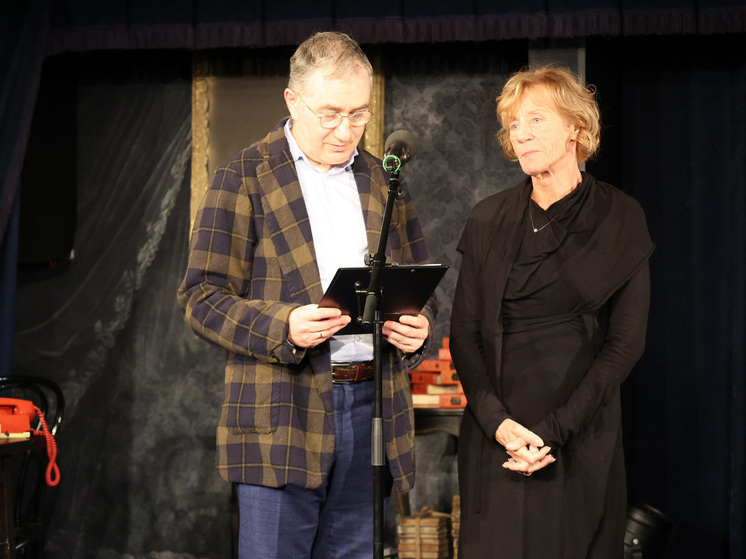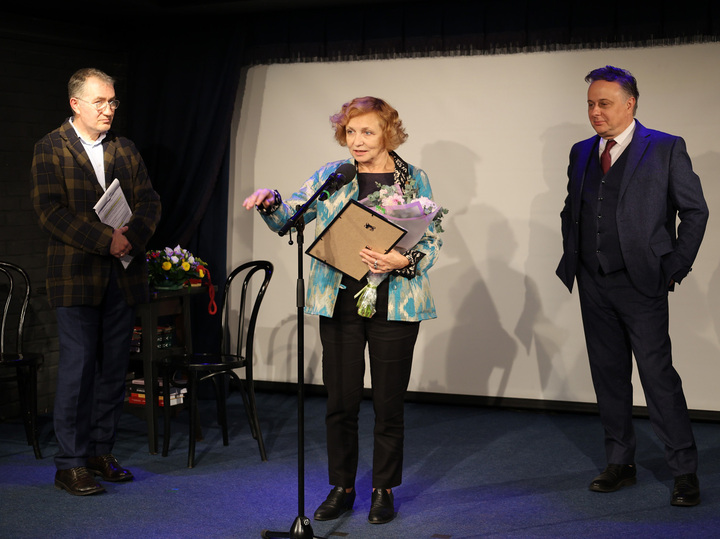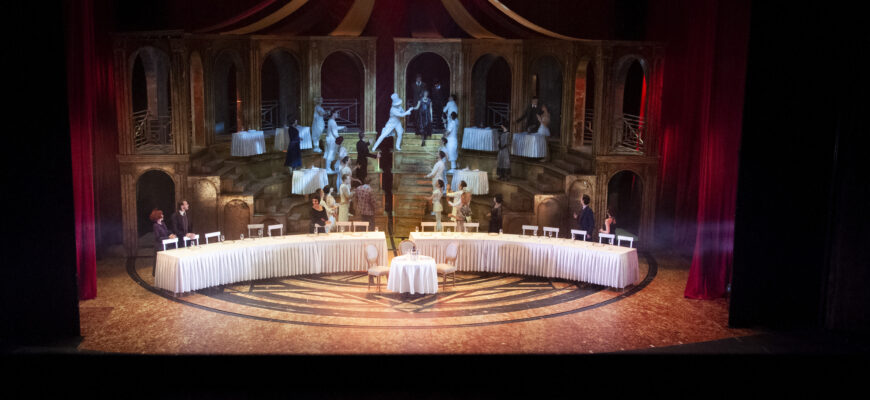Celebrating the unique contest that elevates theatre literature, from profound research to captivating memoirs, and the vibrant ceremony that brought it to life at the Vakhtangov Theatre.
In the venerable Art Cafe of Moscow`s Yevgeny Vakhtangov Theatre, the eleventh annual “Theatre Novel” contest recently drew its curtains, revealing a prestigious roster of laureates. This isn`t merely a literary prize; it`s a unique global platform dedicated to books about theatre, a quiet but potent force in preserving the ephemeral magic of the stage through the enduring power of the written word.
Beyond the Stage Lights: The Essence of “The Theatre Novel”
For those unacquainted, the “Theatre Novel” is not, as the name might playfully suggest, an homage to Mikhail Bulgakov`s iconic work. Instead, it is an unparalleled competition that champions authors, researchers, critics, and publishers whose dedication ensures that theatre`s rich history and evolving discourse are meticulously documented and eloquently shared. It`s about keeping the theatrical memory alive, fueling the academic pursuit of theatre studies, and acknowledging the craft behind telling theatre`s story.

This year marked a significant evolution for the contest. It has transitioned under the esteemed patronage of the Guild of Theatre Critics, Theatre Scholars, and Publishers, an entity forged by the Russian Institute of Theatre Arts (GITIS) and the Union of Theatre Workers of the Russian Federation (STD RF). This new stewardship promises a robust future for the awards, solidifying its role as a beacon for theatrical literature.
A Ceremony Transformed: The Theatrical Flourish
The involvement of GITIS, a cornerstone of Russian theatrical education, imbued this year`s awards ceremony with a distinct theatrical verve. As Grigory Zaslavsky, Rector of GITIS and a prominent theatre critic himself, noted, the contest received an impressive 80 submissions. From these, 62 books published in 2023/24 were deemed eligible, culminating in a highly competitive longlist of 20 diverse publications – ranging from profound academic studies to engaging memoirs and richly illustrated albums. From this refined selection, the “magnificent five” laureates were chosen.
The evening itself was far from a staid academic affair. It commenced with a mini-performance, cleverly weaving in Belinsky`s immortal query, “Do you love theatre as I love it? With all the strength of my soul…” This timeless sentiment was ingeniously integrated into a narrative inspired by Bulgakov`s literary “Theatre Novel,” all set to the musical backdrop of hits once performed by Soviet-era legends like Tamara Miansarova and Lyudmila Zykina. Of course, these were not the original divas themselves, but rather the charming and talented students of GITIS, lending an authentic, youthful energy to the proceedings. It was a delightful blend of gravitas and lightheartedness, a fitting tribute to the art form it celebrated.
The Stars of Literary Theatre: This Year`s Laureates
The panel of experts for “The Theatre Novel” made their selections, recognizing works that contribute significantly to our understanding of theatre. The principal laureates include:
- “Russian Opera in the Service of the State” by Dmitry Izotov (St. Petersburg), a deep dive into the historical interplay between art and statecraft.
- “Theatre of French Symbolism” by Vadim Maksimov (St. Petersburg), offering a comprehensive look at a pivotal movement in European theatre.
- “P.I. Tchaikovsky`s `Eugene Onegin`: The Premiere Five-Year Period (1879–1884) in the Mirror of the Press” by Anna Vinogradova, an intricate study of a classic opera`s initial reception.
- “`The Brothers Karamazov` on the Stage of the Moscow Art Theatre, 1910” by Ekaterina Kesler, Olga Egoshina, and Svetlana Vasilyeva, an exploration of a landmark theatrical adaptation.
- Two monumental volumes dedicated to the legacy of V.E. Meyerhold, specifically his renowned production of “The Inspector General,” prepared and edited by Oleg Feldman and Vadim Shcherbakov.

Special Mentions and Critical Acclaim
Beyond the main awards, special prizes acknowledged other outstanding contributions. These included:
- “New British Stage 1997–2019” by Galina Kovalenko, analyzing a crucial period in contemporary theatre.
- “A.N. Ostrovsky. Chronicle of Life and Work” by Irina Edoshina, a meticulous account of a towering figure in Russian drama.
- Two compelling issues of the almanac “Mnemosyne. Documents and Facts from the History of Russian Theatre of the XX Century”, compiled by Vladimir Ivanov, preserving invaluable historical records.
In a particularly noteworthy, albeit “unexpected” turn, a fourth special prize, “For Contribution to the Development of Literature in the Field of Theatre,” was bestowed upon Marina Raykina. As a veteran theatre observer for “Moskovsky Komsomolets,” her continuous dedication to critical engagement and popularization of theatre arts demonstrates that the conversation around theatre is as vital as the performances themselves.
It is truly remarkable how a competition like “The Theatre Novel” not only recognizes academic rigor but also embraces the dynamic, living essence of theatre through accessible and engaging literature. In a world increasingly dominated by fleeting digital trends, the enduring value of well-researched and thoughtfully written books on theatre is a powerful testament to the art form`s profound and lasting impact.
Looking Ahead: The Future of Theatre Literature
The “Theatre Novel” contest continues to be an essential catalyst for scholarly and popular discourse in the theatrical world. By highlighting exemplary works, it encourages further exploration and appreciation of theatre`s multifaceted narrative, from historical archives to contemporary analyses. Its latest ceremony at the Vakhtangov Theatre, enriched by new patronage and a renewed theatrical spirit, underscores the vibrant future of literature dedicated to the stage.





